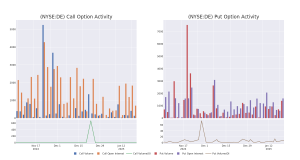
By Lewis Krauskopf
NEW YORK (Reuters) -U.S. inflation data in the coming week could test the nerves of stock investors and further inflame worries about rising Treasury yields and uncertainty over Donald Trump’s policy plans.
After back-to-back standout years, the stock market has wobbled out of the gate in 2025, with the benchmark S&P 500 down about 1% so far this year.
A revival of inflation is seen as one of the key risks facing equities, with the Federal Reserve already pulling back on its projected interest rate cuts because it expects inflation to rise at a faster pace than it had previously anticipated.
Markets pushed out expectations for a next rate cut until June after a blowout U.S. jobs report on Friday, with stocks falling sharply and Treasury yields hitting fresh milestones following the December employment data.
The monthly consumer price index, due on Jan 15, is among the most closely watched inflation measures and could spark further market volatility if it comes in higher than expectations, investors said.
Monthly inflation data can have an “outsized presence in the market,” said Marta Norton, chief investment strategist at retirement and wealth services provider Empower.
“If we were to see inflation re-accelerate, that would be concerning to markets,” Norton said. “There’s just this kind of pins and needles moment with every inflation print.”
Focus turned to the inflation data following the surprisingly strong employment report for December. Payrolls soared by 256,000, well above the 160,000 estimate, while the unemployment rate fell to 4.1%.
The strong jobs growth “has added to the uncertainty about the trend in inflation, as well as the prospects for the Fed to cut interest rates in 2025,” said Sam Stovall, chief investment strategist at CFRA.
The December CPI is expected to show a 0.3% increase on a monthly basis, according to a Reuters poll.
While the Fed was confident enough that inflation had moderated to start cutting interest rates in September, the pace of annual inflation has remained above the Fed’s 2% target. The Fed now projects inflation will rise 2.5% in 2025.
Minutes from the Fed’s latest meeting, released on Wednesday, showed officials also worried that Trump’s policies on trade and immigration could prolong the effort to bring down inflation.
The Fed is widely expected to pause its rate-cutting cycle at its next meeting at the end of the month, but firmer-than-expected CPI data could push back market projections for further easing even later in the year.


